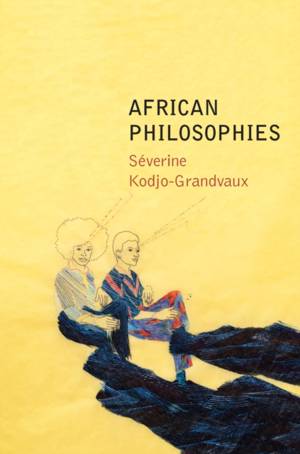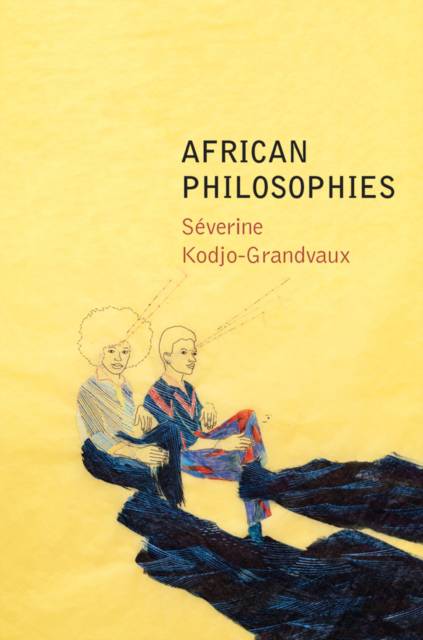
- Afhalen na 1 uur in een winkel met voorraad
- Gratis thuislevering in België vanaf € 30
- Ruim aanbod met 7 miljoen producten
- Afhalen na 1 uur in een winkel met voorraad
- Gratis thuislevering in België vanaf € 30
- Ruim aanbod met 7 miljoen producten
Zoeken
Omschrijving
For many students of philosophy in the West, philosophy is understood as a discipline stemming from Ancient Greece, embracing the great thinkers of medieval and early modern Europe and continuing through to the present day. To the extent that other philosophical traditions are taken into account, these tend to be selected philosophical traditions of Asia. Rarely is African philosophy considered in this context, even though Africa and the West are deeply interconnected through long histories of colonialism and slavery.
In this important book Séverine Kodjo-Grandvaux argues that a serious engagement with African philosophy is long overdue. She shows that there is a rich tradition of philosophical thought in Africa that addresses issues ranging from the legacies of colonialism to the nature of time, the state, responsibility, identity, dignity and personhood. An engagement with African philosophy also offers a fresh perspective on Western philosophy, prompting us to interrogate ourselves and our own history. Conceptualizing African philosophy becomes a way of conceptualizing the world and of understanding how to know ourselves through the gaze of another.
African Philosophies is not so much a survey of philosophy in Africa but rather an account of how the question of African philosophy emerged in the second half of the 20th century and of what we can learn from a serious engagement with African philosophy today. It will be of great interest to students and scholars in philosophy, in colonial and postcolonial studies and throughout the humanities.
In this important book Séverine Kodjo-Grandvaux argues that a serious engagement with African philosophy is long overdue. She shows that there is a rich tradition of philosophical thought in Africa that addresses issues ranging from the legacies of colonialism to the nature of time, the state, responsibility, identity, dignity and personhood. An engagement with African philosophy also offers a fresh perspective on Western philosophy, prompting us to interrogate ourselves and our own history. Conceptualizing African philosophy becomes a way of conceptualizing the world and of understanding how to know ourselves through the gaze of another.
African Philosophies is not so much a survey of philosophy in Africa but rather an account of how the question of African philosophy emerged in the second half of the 20th century and of what we can learn from a serious engagement with African philosophy today. It will be of great interest to students and scholars in philosophy, in colonial and postcolonial studies and throughout the humanities.
Specificaties
Betrokkenen
- Auteur(s):
- Vertaler(s):
- Uitgeverij:
Inhoud
- Aantal bladzijden:
- 270
- Taal:
- Engels
Eigenschappen
- Productcode (EAN):
- 9781509558452
- Verschijningsdatum:
- 3/09/2025
- Uitvoering:
- Paperback
- Formaat:
- Trade paperback (VS)
- Afmetingen:
- 156 mm x 228 mm
- Gewicht:
- 439 g

Alleen bij Standaard Boekhandel
+ 86 punten op je klantenkaart van Standaard Boekhandel
Beoordelingen
We publiceren alleen reviews die voldoen aan de voorwaarden voor reviews. Bekijk onze voorwaarden voor reviews.







